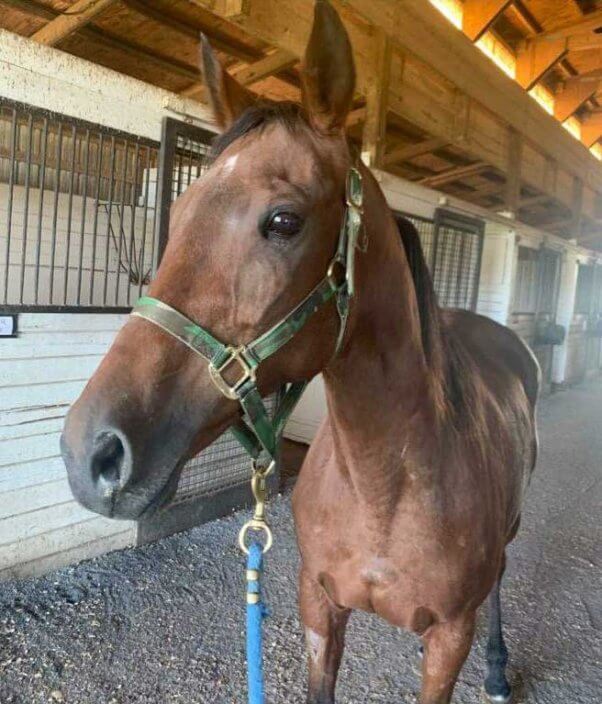From Racetracks to Refuge—This Thoroughbred’s Rescue Story Will Melt Your Heart
If local Maryland activists hadn’t alerted PETA that 18-year-old racehorse Pastel was being put up for auction, the Thoroughbred mare wouldn’t be enjoying her new sanctuary life right now.

Born in 2002, Pastel was forced to race 63 times over the course of five years. After her last race in 2008, she dropped off the map, as many “retired” racehorses do. She resurfaced this month at an auction, putting her at risk of being shipped to Canada or Mexico and slaughtered. But some Maryland activists weren’t having that—and neither was PETA. They contacted us, and we jumped into action, immediately getting in touch with The Stronach Group, which owns Pimlico Race Course and Laurel Park in Maryland and is committed to ensuring that horses who race at its tracks don’t go to slaughter. (Last year, the group also took the unprecedented step of banning abusive Thoroughbred trainer Jerry Hollendorfer from all its tracks—a move that PETA backed.) Stronach didn’t let us down—it tracked Pastel down, purchased her, and arranged her transport to a Maryland sanctuary, where she resides now.
At her new sanctuary home, Pastel will spend the remainder of her life enjoying rolling pastures and companionship and will never be in danger again.
Facts About Horses Forced to Race
Every week, an average of 24 horses experience fatal breakdowns at racetracks across the country.
As many as 8,000 unprofitable or simply unwanted Thoroughbreds from the U.S. are trucked to Canada and Mexico and slaughtered each year.
Even horse racing “stars” can end up at a slaughterhouse. Ferdinand, the 1986 Kentucky Derby champion, was slaughtered in 2002 after his breeding days in Japan were over.
Don’t fret—it’s not all doom and gloom. Our work to tackle horse racing cruelty is paying off. These are just a few of the things we’ve done to help horses forced to race:
- Our proposal for implementing and funding a Thoroughbred retirement program (the Thoroughbred 360 Lifecycle Fund) was embraced by the racing industry and became the funding model for today’s Thoroughbred Aftercare Alliance (TAA).
- We conceived a first-of-its-kind technology for horse racing wagering terminals—a pop-up screen that asks bettors to donate a portion of their winnings to the TAA, a technology that will help Thoroughbreds beyond their racing careers.
- The first-ever criminal investigation into the culpability of trainers and veterinarians who medicate horses for soreness and injury and then put them on the track was conducted by the Los Angeles District Attorney’s Office at our request.
- Following our work with the California Horse Racing Board, California has implemented groundbreaking changes and regulations to spare horses, including mandatory investigations into deaths of horses as well as necropsies and increased drug testing for horses.
We will continue to do everything we can to end horse racing cruelty, but we need your continued supported to get there. For Pastel, Ferdinand, and all the other victims of this bloody industry, please, act now: Tell Congress to get the drugs out of horse racing and to ban horse slaughter, and click below to take more action for horses:

